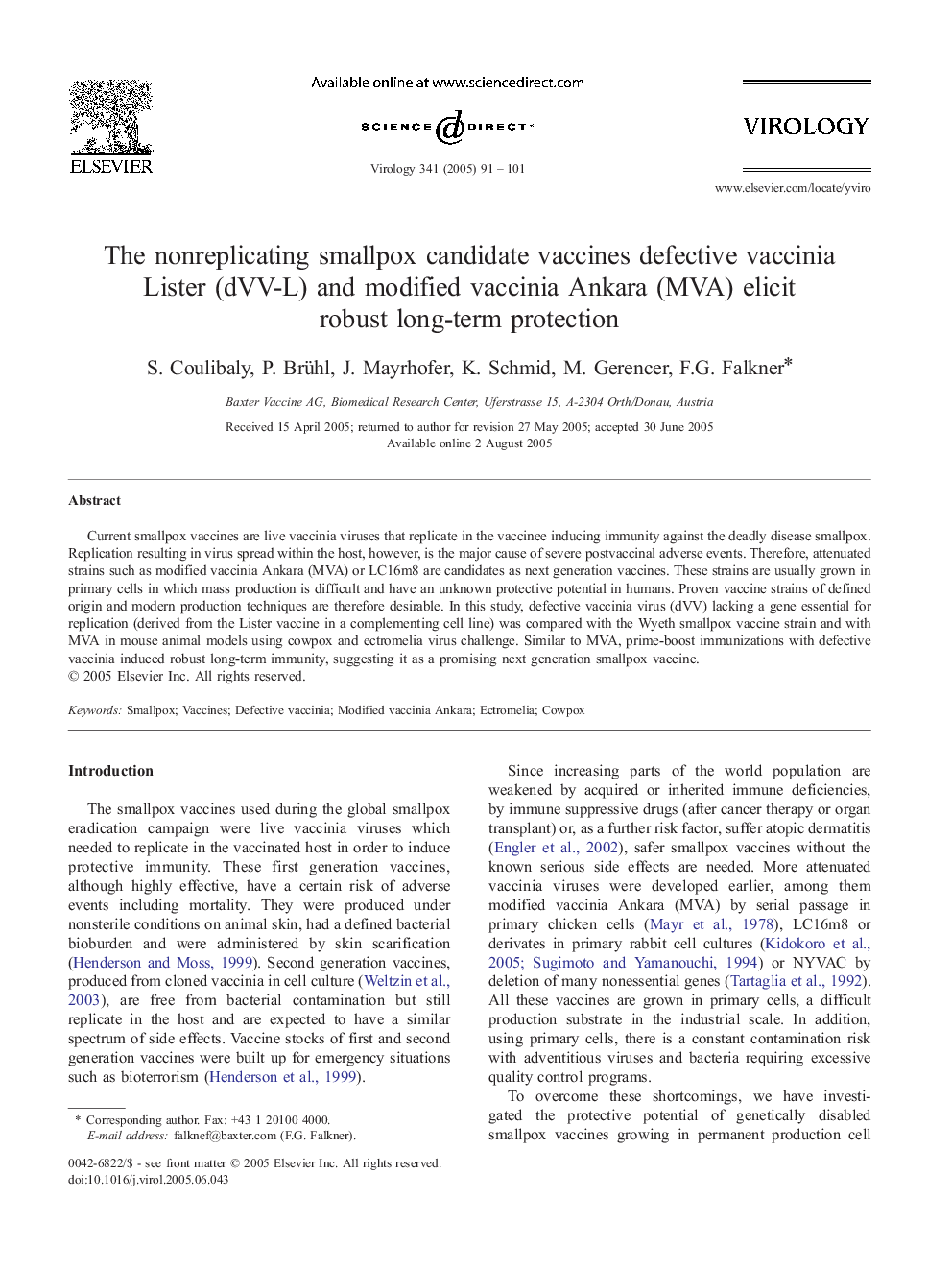| Article ID | Journal | Published Year | Pages | File Type |
|---|---|---|---|---|
| 9287970 | Virology | 2005 | 11 Pages |
Abstract
Current smallpox vaccines are live vaccinia viruses that replicate in the vaccinee inducing immunity against the deadly disease smallpox. Replication resulting in virus spread within the host, however, is the major cause of severe postvaccinal adverse events. Therefore, attenuated strains such as modified vaccinia Ankara (MVA) or LC16m8 are candidates as next generation vaccines. These strains are usually grown in primary cells in which mass production is difficult and have an unknown protective potential in humans. Proven vaccine strains of defined origin and modern production techniques are therefore desirable. In this study, defective vaccinia virus (dVV) lacking a gene essential for replication (derived from the Lister vaccine in a complementing cell line) was compared with the Wyeth smallpox vaccine strain and with MVA in mouse animal models using cowpox and ectromelia virus challenge. Similar to MVA, prime-boost immunizations with defective vaccinia induced robust long-term immunity, suggesting it as a promising next generation smallpox vaccine.
Related Topics
Life Sciences
Immunology and Microbiology
Virology
Authors
S. Coulibaly, P. Brühl, J. Mayrhofer, K. Schmid, M. Gerencer, F.G. Falkner,
